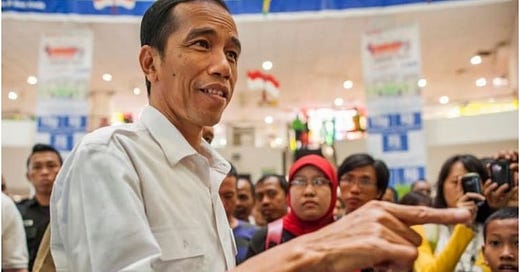By: Ainur Rohmah
Indonesian President Joko Widodo, who came to power in 2014 as a fresh figure seemingly unhobbled by political fetters, has revived the public’s Suharto-era memory of political nepotism by likely becoming the first active president to preside over political sinecures for both his son and son-in-law. A growing chorus of critics says the president’s reform credentials have increasingly faded as his time in office lengthens.
The charges of nepotism have hardly helped. Despite presidential protestations of electoral innocence, his first son, Gibran Rakabuming Raka, 33, is predicted to win the mayoral election of Surakarta, more commonly known as Solo, a post previously held by his father. Jokowi's son-in-law, Bobby Nasution, 29, is expected to win the mayoralty in his hometown, Medan City in North Sumatra.
Several quick counts by survey institutions show Gibran and his running mate, Teguh Prakosa, winning more than 80 percent of the votes. Bobby and his running mate Aulia Rahman received more than 50 percent in their race. The official announcement of the results is scheduled by the General Election Commission in each area before December 23.
The elections were held on December 9, involving more than 100 million voters to elect leaders in nine provinces, 224 districts, and 37 cities. The event was criticized for being conducted in the face of the coronavirus pandemic, with cases continuing to rise and with political campaigning adding to the Covid problems. An average of 6,000 new cases are being reported each day, with a cumulative total of more than 617,000, the highest in Asia. More than 18,000 have died, a figure that most authorities believe is low given the country’s less-than-optimum reporting standards. Data from the Covid-19 Handling Task Force show that 24 regions holding elections are so-called red zones (high transmission rate) and 189 others are reporting moderate transmission rates.



